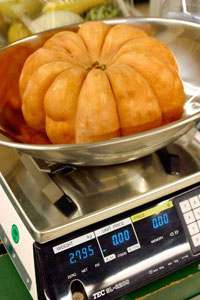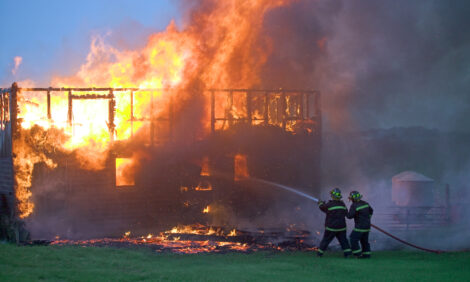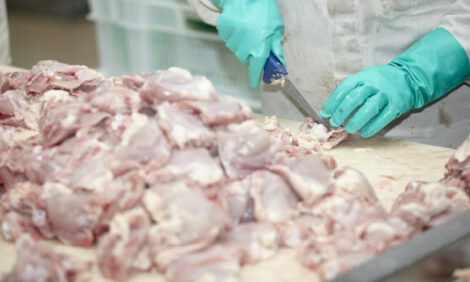



MEPs Probe Reasons Behind World Food Crisis
EU - The world is facing "an acute food crisis". That was the verdict of a report adopted by MEPs in the Agriculture Committee on 8 December.
According to the report, the price of wheat - a vital staple foodstuff - has rocketed 180 per cent in just two years.
Mr Capoulas Santos, 57, a former teacher and Socialist member of the Parliament since 2004, said that although the situation had improved, food markets are very "volatile". Speaking to us in his office in Brussels he said, "We cannot say if prices will remain at the same high level."
"Environmental legislation is driving down food production"
Mairead McGuinness was the first women to graduate from University College Dublin in Agricultural economics. The 49-year old is a member of the centre right EPP-ED group in the Parliament.
She said that trends across the continent tended to increase prices: "In the Europe Union we are a high priced market because we demand high standards of food producers and we have decided to produce agricultural and food products in a particular way."
On the issue of whether producing more food is the answer, the former journalist was sceptical: "I am not sure that any of the policies we have currently would allow more food to be produced in Europe because all the environmental legislation is driving down food production and we're trying to do less damage to the environment."
Her report says "EU legislation, (e.g. on plant protection products), may have a dramatic impact by reducing the tools available to farmers to maximise yields and may, in effect, lead to a dramatic reduction in EU farm output, particularly in the grain sector."
Europe and the developing world
As food prices rise, the extent to which Europe should use its wealth and large agriculture budget to help the developing world has been the subject of fierce debate.
Earlier in December, MEPs approved €1 billion in farm aid for practical things like seeds and fertilizers to help to poor farmers in the developing world.
The EU is the biggest aid giver in the world, with 60 per cent of all development aid coming from European countries in the Union, but farm aid has fallen and now accounts for only 3 per cent of development aid, down from 17 per cent in the 1980's.
Ms McGuinness said that if Europe had invested in more projects in the developing world 20 years ago, the €1 billion would not have been needed.
Food stockpiles too low
Another issue highlighted by the report and the two MEPs is the level of global stocks of food available for an emergency. Just over five years ago, the world could have fed itself for over four months if all food supplies were interrupted.
The present situation is that the world has just over one month of surplus food. Ms McGuinness thinks this situation is "extraordinary" and a "bad policy" due to the "sudden twists nature can take".
For Mr Capoulas Santos the CAP itself is not to blame for the falling food stocks, rather it is "market instability and unfavourable climatic conditions".
The real price of food and the relative interests of those who eat and grow the food has been a political issue for centuries. Ms McGuinness put it like this: "The balance has to be struck between a fair price to a producer of food to keep them in the business of growing and the consumer interest which is the access to good value food."
Ms McGuinness added a last point saying "We have to realise that there is a price to be paid for good food and quality and we are going to have to pay that price."









